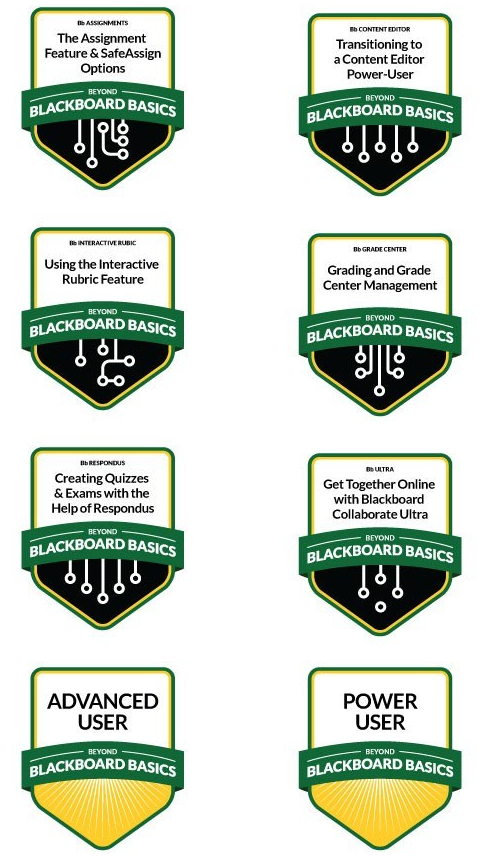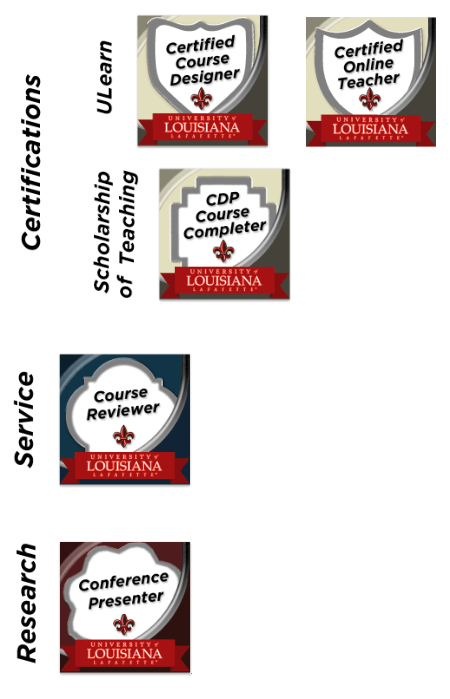I’ve held many conversations with higher education professionals about how to encourage the use of instructional technologies in the classroom. Many times the conversation revolves around the newest innovations, what tool is the most user-friendly, or which new tech will capture student’s attention. Eventually, the conversation typically ends with us talking about faculty training and support. How do we motivate our faculty to be attend technology training sessions?
Luckily, today we are joined by Preston Davis (Northern Virginia Community College) and Luke Dowden (University of Louisiana at Lafayette) to learn about how their institutions incentivize faculty participation in teaching with technology professional development. Thank you both for your advice!
Oh, and I can’t wait to check out their WCET Annual Meeting session about digital credentials! Read on to learn more!
Enjoy the read and enjoy the day,
~Lindsey, WCET
Higher education institutions are facing increasing pressure to demonstrate innovation. Students, faculty/staff, and employers have different priorities and expectations, especially when it comes to the use of technology. The need to incorporate instructional technology tools into an effective learning environment is apparent, and there is no shortage of products and services available to faculty and students alike. The problem with the use of these available instructional technologies often lies with training faculty to effectively use technology in their classroom, whether physical or virtual. Moreover, most faculty, regardless of institution type, are trained in their discipline (e.g. math, english, nursing) and have little to no preparation in teaching or teaching with technology.
Northern Virginia Community College and the University of Louisiana at Lafayette have identified faculty preparation to teach online as a high priority and are using digital credentials to incentivize faculty participation.
At Northern Virginia Community College (NOVA), Dr. Preston Davis adopted a new approach to faculty training in instructional technology with the following objectives (note: among all the faculty objectives, the following apply to this story):
- Provide accessible, convenient, high-quality training for faculty and staff across the college in the use of instructional technologies for teaching and learning,
- Provide training and certification in Blackboard, hybrid instruction, and online instructional tools with a focus on quality training outcomes,
- Emphasize synchronous and asynchronous virtual workshops over in-person trainings,
- Leverage existing resources such as video tutorials to quickly build out effective trainings and job aids,
- Recognize faculty initiative through digital credentials that acknowledge their professional development accomplishments.
NOVA is a large community college serving over 70,000 students in the Washington DC metro area at six campuses and online. Providing training support to over 3,000 faculty/staff members spread throughout one of the most heavily populated regions in the nation is no small task. Our approach to this is a comprehensive training program that leverages online technologies, and uses certifications and digital badges to encourage and recognize participation.
Badges are digital tokens that appear as icons or logos on a web page or other online venues.
NOVA’s Instructional Technology Training Digital Badges provide faculty participants with a digital credential as evidence of completing professional development workshops and programs focused on instructional technology.

These badges are useful for faculty evaluations, appointments and promotions.
A collection of badges can also function as a distributed portfolio that may be accessible from a variety of social media sites, such as LinkedIn, Facebook, and Google Plus.
When badges serve as part of a résumé or portfolio, they tell current/prospective employers and professional organizations a more detailed story about the technology skills and interests of faculty, including both the hard and soft skills that were acquired.
We developed our new digital badge initiative to complement our certification programs for teaching hybrid and online courses. We currently offer tracks in advanced Blackboard tools, Google Apps for Educators, Microsoft Office, and Free Tools for Enhanced Teaching and Learning. These programs are open to all faculty and staff, and apply to teaching in all modalities. This is a new initiative at NOVA, but early feedback indicates that faculty are very interested in our updated training program and see the value in being able to showcase their knowledge and use of technology to support learning outcomes and student success.
Aligning Digital Credentials with Training Pathways
At the University of Louisiana at Lafayette, Dr. Luke Dowden and the Instructional Support Team within the Office of Distance Learning have aligned digital credentials to existing training pathways. According to Dowden, faculty are required to be ULearn certified in order to teach a hybrid or online course at UL Lafayette. Faculty may select from two pathways. Distance Learning also internally certifies online courses using the Quality Matters Rubric standards, which is another opportunity for faculty to earn a digital credential as a peer reviewer or by having their course certified. “We have aligned our initial iteration of digital credentials to the University’s tenure and promotion standards of research, teaching and service. We intend to expand our digital credentials through this ecosystem,” stated Dr. Dowden.
Since launching the first credential in 2016, a total of four have been created with 573 issued and 18,600 views of the credentials on Twitter, LinkedIn, and Facebook. Dowden credits his team member, Carey Hamburg, a Senior Instructional Designer, for his diligent work to create digital credentials that balance the University’s brand while recognizing a specific achievement.
Dowden credits his team member, Carey Hamburg, a Senior Instructional Designer, for his diligent work to create digital credentials that balance the University’s brand while recognizing a specific achievement.
Digital Credential Platforms
There are many platforms that can be used to create and distribute digital credentials, a few examples include:
- Credly– Cred.ly helps users create badges, upload their own designs, and give credit through the platform. It is available as a web-based version and an iOS app.
- Open Badges– Open Badges by Mozilla allows users to create and issue badges that do not have to be tied to a certain platform.
- For All Badges– iOS app that works in conjunction with For All Rubrics to align your rubrics with the badging system. The app also integrates with Mozilla’s Open Badges platform, and allows students (or staff members) to save badges to their “backpack.”
- Badgewallet – Android app for earning, managing and distributing digital credentials.
Want to learn more, or share your own experiences with digital credentials? Come to Luke and Preston’s presentation: Want Buy-In on Digital Credentials? Start with Faculty at the WCET Annual Meeting October 25-27, 2017. See you in Denver CO!

Wm. Preston Davis
Director Educational Technology and Online Instructional Services
Northern Virginia Community College (NOVA)

Luke Dowden
Director of Distance Learning
University of Louisiana at Lafayette



 Dowden credits his team member, Carey Hamburg, a Senior Instructional Designer, for his diligent work to create digital credentials that balance the University’s brand while recognizing a specific achievement.
Dowden credits his team member, Carey Hamburg, a Senior Instructional Designer, for his diligent work to create digital credentials that balance the University’s brand while recognizing a specific achievement.

